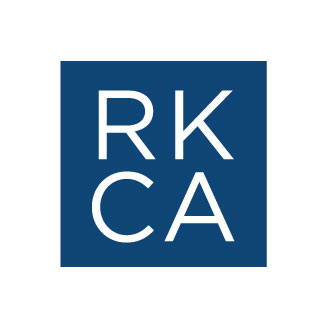Click here for the original Article. Feature begins on page 6.
Given that the Philippines has had some of the world’s longest community lockdowns, how do you see this affecting foreign investment in the country within the next 5-10 years?
The fundamental thesis for investing in the Philippines has not changed (a relatively young population, high English fluency) and I expect that to continue although there may be a slight decline over the next 12 to 14 months. I expect to see FDI to stabilize by 2022 based upon the current assumption around the availability of vaccines and therapeutics.
As the Philippines slowly attempts to reopen, do you anticipate a change in the profile of investors investing in the country?
I do not think that it is unrealistic to expect a short-term pullback by investors. Those who have invested before will have the confidence to move ahead with in-flight or new projects while those entering the country for the first time, may pause and reassess.
What investment trends do you foresee happening to the BPO industry in the Philippines, given the economic effects of the prolonged lockdown in Metro Manila?
The pandemic has definitely accelerated trends already underway in the Philippines as far as the BPO industry is concerned. Working from home is far more prevalent today out of necessity than at any time in the past. During these times of lockdown and social distancing, employers are working with their employees to invest more in a digitally-enabled environment supported by stable internet. For example, investments in hardware allow employees to connect to the internet along with investments in tools that track productivity, foster team building, and community are on the rise.
How can family and founder-owned businesses in the Philippines leverage M&A to thrive despite the pandemic?
While no two industries have been impacted the same way, BPO companies with high exposure to the Travel and Leisure sector have been adversely impacted. Many companies in the industry have pivoted to maintaining a semblance of normalcy or business as usual by shifting employees to work from home. As such, the BPO industry in the Philippines is expected to experience nominal to flat growth this year.
If a family or founder-owned business is contemplating a sale of their business and have fared well through the pandemic, then there are buyers who have the interest and the financial wherewithal to close transactions at pre-COVID-19 valuation multiples. While the threshold to complete transactions within strategics may have shifted, private equity and strategics backed by private equity are active in the M&A market. The most common obstacle for deal flow in 2021 is expected to be the availability of quality acquisition targets.
On the other hand, if a company is looking at acquiring other companies, then the opportunities will continue to present themselves. M&A is the execution arm of strategy and if a company has been deliberate about formulating their company strategy and, by extension, their acquisition strategy, the opportunity to acquire companies that are constructive to the acquirer will definitely be there in 2021. The longer the pandemic lasts, the higher the number of distressed assets across industries to come to market. Time is of the essence in distressed deals and if you are going to participate in distressed transactions, I would recommend lining up necessary advisors and financing sources that would allow you to complete due diligence and fund the transaction in a compressed timeline.
At a time when everybody is scaling down and the business climate is quite uncertain, what would you say are the benefits of continuing M&A?
Again, I don’t believe that all industries have been impacted the same way – hotels and airlines have been impacted far adversely than the BPO or software industries. While the BPO industry in the Philippines may not experience the growth that it has been accustomed to in the past, the growth is expected to return as the vaccines are distributed and administered throughout 2021.
Provided that the acquirer is on a solid operational and financial footing, M&A can accelerate growth – revenue, clients, capabilities – compared to relying solely on organic growth. If you are looking to acquire companies in the near future, start your planning process to highlight your acquisition criteria, process design, ideal deal structure, integration planning. While the process may be complicated and cumbersome, you can de-risk the common pitfalls with planning and deliberate execution.
How might the practice of M&A itself change in the next few years?
Over the last few quarters, companies have been building war chest of strategic liquidity. By way of example, according to data from the S&P Dow Jones Indices, the cash holdings of companies in the S&P 500 were able to hit a record $1.8 trillion (USD). I expect to see some of the cash reserves being deployed towards strategic M&A in the future and as a result, more strategic companies participating in acquisitions than before relative financial buyers.
What types of M&A can we expect to see in the near future?
We have definitely observed an impact to the debt markets as a result of the pandemic, as a result, the equity checks as a proportion to debt in deals has increased. Also, as we saw in the 2008 financial crisis, a lot of companies – both public and private – reassessed their core business and divested non-core assets. As a result, I expect to see corporate carve-outs on the rise again.
The long-term impact of the crisis to businesses is evolving and will continue to do so until a large part of the country has been vaccinated and therapeutics developed and available to combat what is hopefully a once-in-a-lifetime event.
Mono Bhattacharya is a partner at RKCA Investment Banking in Cincinnati. Investment banking services provided by RKCA, Inc., Member SIPC/FINRA. Other consulting services provided by RKCA Services, LLC. This material should not be construed as investment, legal or accounting advice.

